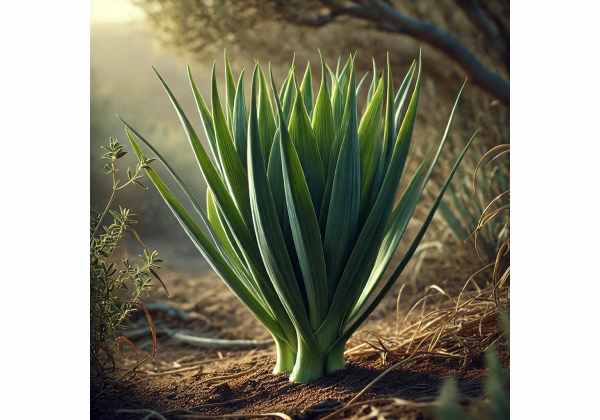Leek is a versatile vegetable belonging to the allium family, widely celebrated for its culinary charm and impressive health benefits. Rich in vitamins, minerals, and antioxidants, leek supports cardiovascular health, boosts immunity, and aids digestion. Its unique bioactive compounds, including flavonoids and sulfur-containing constituents, contribute to anti-inflammatory and anticancer properties. Used extensively in soups, stews, and herbal remedies, leek is valued for its mild, sweet flavor and nutritious profile. This in-depth analysis examines leek’s botanical characteristics, phytochemical composition, health advantages, practical uses, and scientific research, providing a comprehensive guide to understanding and utilizing this nutrient-dense herb in both culinary and medicinal applications.
Table of Contents
- Botanical Overview and Morphological Characteristics
- Chemical Constituents and Active Compounds
- Health Benefits and Core Properties
- Practical Applications and Safety Guidelines
- Research Insights and Significant Studies
- Frequently Asked Questions
Botanical Overview and Morphological Characteristics
Leek (Allium ampeloprasum var. porrum) is a member of the Amaryllidaceae family, which includes other familiar alliums like onions, garlic, and chives. It is a hardy, perennial vegetable known for its long, cylindrical white stalk and broad, dark green leaves. The edible portion of the leek is its fleshy, elongated stem that gradually tapers as it nears the base of the leaves. This structure not only stores essential nutrients but also gives the leek its characteristic mild, sweet flavor.
Taxonomy and Distribution
Taxonomically, leek is classified within the Allium genus. It has been cultivated since ancient times for both its culinary and medicinal properties. Historically favored by the Greeks and Romans, leek was revered not only as a food but also as a symbol of bravery and longevity. Today, leek is grown worldwide, thriving in temperate climates with well-drained, fertile soils. It is particularly popular in European countries, where it forms the backbone of many traditional dishes.
Morphological Features
Leeks exhibit a unique morphology that distinguishes them from their allium relatives. They have a robust, elongated white stalk that forms the edible part of the plant. The lower portion of the plant consists of tightly wrapped, pale green leaves that protect the inner stalk from environmental stress. As the plant matures, the leaves gradually unfurl into long, flat structures that are rich in chlorophyll, giving them a vibrant green appearance. The overall height of a mature leek can range from 12 to 24 inches, depending on the variety and growing conditions.
The texture of the leek is tender yet fibrous, making it ideal for slow cooking, where it softens and imparts a delicate sweetness to soups and stews. Unlike onions, leeks have a subtler flavor profile, with a slight hint of garlic and a clean, almost floral aroma. This makes them a versatile ingredient that can be used in a wide variety of culinary applications.
Growth Conditions and Cultivation Practices
Leeks prefer cool, moist climates and are typically cultivated as a winter or early spring crop in temperate regions. They require well-drained, sandy loam soils enriched with organic matter to ensure optimal growth. Leeks are often grown from seeds sown in controlled environments before being transplanted into the field. During cultivation, leeks benefit from a process known as “blanching,” where the lower portion of the plant is covered with soil or mulch to prevent exposure to sunlight. This technique results in a pale, tender stalk that is free from the bitterness associated with fully developed green leaves.
Modern agricultural practices have improved the yield and quality of leeks through careful soil management, crop rotation, and integrated pest management. These methods not only enhance the nutritional content of the vegetable but also minimize the need for chemical fertilizers and pesticides, making leeks a sustainable choice for organic farming.
Ecological and Cultural Significance
In addition to its nutritional and culinary importance, leek plays a significant role in local ecosystems. Its dense foliage provides habitat for beneficial insects, including pollinators that are vital for maintaining biodiversity. Leek also contributes to soil health by adding organic matter as it decomposes, which in turn enriches the soil for subsequent crops.
Culturally, leeks hold a special place in various culinary traditions. In Wales, for example, the leek is a national symbol and is proudly featured on the country’s flag and emblems. In France, leeks are a staple ingredient in the classic potato and leek soup (potage parmentier), showcasing their versatility and enduring appeal. The historical and cultural resonance of leek has made it a beloved vegetable that transcends borders and culinary styles.
Modern Botanical Research
Recent botanical studies have focused on optimizing leek cultivation techniques and understanding its genetic diversity. Researchers are exploring methods to improve disease resistance, enhance flavor profiles, and increase yield through selective breeding. These advancements are critical for meeting the growing global demand for nutritious, sustainable vegetables. Furthermore, studies on the biochemical pathways in leeks provide insights into how environmental factors influence the synthesis of key bioactive compounds, laying the groundwork for future innovations in natural food production.
In essence, the botanical overview and morphological characteristics of leek reveal a plant that is not only nutritionally robust but also ecologically significant and culturally cherished. Its distinctive physical traits, coupled with its adaptability to various growing conditions, underscore its role as a valuable crop in both traditional agriculture and modern sustainable food systems.
Chemical Constituents and Active Compounds
Leek is renowned for its rich phytochemical profile, which contributes to its numerous health benefits and distinctive flavor. The bioactive compounds in leek work synergistically to provide antioxidant, anti-inflammatory, and antimicrobial effects. Below is an in-depth exploration of the key active constituents found in leek:
- Organosulfur Compounds
Leek contains a variety of organosulfur compounds, similar to its allium relatives such as garlic and onions. These compounds, including S-alk(en)yl cysteine sulfoxides, are responsible for leek’s characteristic aroma and are linked to its potential anticancer and cardioprotective properties. They play a role in detoxification processes and help modulate enzyme activities involved in inflammation and cellular repair. - Flavonoids (Quercetin and Kaempferol)
Flavonoids are potent antioxidants found abundantly in leek. Quercetin and kaempferol help neutralize free radicals and reduce oxidative stress in the body. These compounds contribute to the anti-inflammatory and anti-allergic properties of leek and are instrumental in protecting cells from environmental damage. - Polyphenolic Compounds
Leek is rich in polyphenols, which include a variety of phenolic acids and tannins. These compounds enhance the antioxidant capacity of leek and support overall cellular health by combating oxidative stress. They also contribute to the bitter-sweet flavor of the vegetable and have been linked to improved cardiovascular health. - Saponins
Saponins are naturally occurring compounds that exhibit anti-inflammatory and cholesterol-lowering properties. In leek, these compounds aid in the stabilization of cell membranes and enhance the bioavailability of other nutrients, making them a key component in maintaining overall health. - Dietary Fiber
The high dietary fiber content in leek not only aids in digestion but also supports a healthy gut microbiome. Fiber helps regulate blood sugar levels, promotes satiety, and is associated with reduced risk of chronic diseases such as type 2 diabetes and cardiovascular disorders. - Vitamins and Minerals
Leek is an excellent source of essential vitamins and minerals. It is particularly rich in vitamin K, vitamin C, and folate, as well as minerals like manganese, iron, and magnesium. These micronutrients are crucial for maintaining bone health, boosting immunity, and supporting metabolic functions. - Fructans
Fructans are a type of soluble dietary fiber that serves as a prebiotic, fostering the growth of beneficial gut bacteria. They contribute to improved digestive health and may also play a role in modulating blood sugar levels, offering additional metabolic benefits. - Amino Acids and Protein
Although not a significant source of protein, leek contains essential amino acids that contribute to its nutritional value. These amino acids are important for cellular repair and regeneration, as well as overall muscle maintenance and immune function.
The diverse array of chemical constituents in leek not only underpins its unique flavor but also drives its wide range of therapeutic benefits. Modern extraction techniques and rigorous quality control ensure that the bioactive compounds in leek are preserved in culinary and medicinal products, thereby maximizing their health-promoting properties. Ongoing research continues to explore the synergistic interactions among these compounds, offering deeper insights into how leek can be optimized for use in integrative health and wellness practices.
Health Benefits and Core Properties
Leek is celebrated not only for its culinary versatility but also for its significant health benefits. Its rich phytochemical profile and high nutrient content confer a wide range of therapeutic properties that contribute to overall well-being. Here are some of the key health benefits and core properties of leek:
Cardiovascular Support
Leek is known to promote heart health through several mechanisms. The organosulfur compounds found in leek help improve blood circulation and reduce cholesterol levels, thereby lowering the risk of cardiovascular diseases. The presence of dietary fiber and polyphenols further supports cardiovascular function by reducing inflammation and stabilizing blood sugar levels. Regular consumption of leek is associated with a reduced risk of atherosclerosis and improved overall heart health.
Anti-Inflammatory and Antioxidant Effects
Chronic inflammation is a key contributor to many diseases, including arthritis and certain cancers. Leek’s high concentration of flavonoids, polyphenols, and organosulfur compounds helps combat inflammation by neutralizing free radicals and inhibiting pro-inflammatory enzymes. These antioxidant properties not only protect cells from oxidative stress but also support the body’s natural defense mechanisms, making leek an essential component in anti-aging diets and chronic disease prevention strategies.
Digestive Health and Gut Function
The significant fiber content in leek plays a crucial role in promoting digestive health. Dietary fiber aids in regulating bowel movements, preventing constipation, and supporting a healthy gut microbiome. The fructans present in leek serve as prebiotics, feeding beneficial gut bacteria and enhancing overall digestive function. These properties make leek a valuable ingredient in diets aimed at improving gut health and preventing digestive disorders.
Immune System Enhancement
Leek is a rich source of vitamins and minerals that are vital for maintaining a robust immune system. Vitamin C, vitamin K, and various antioxidants work synergistically to bolster immune function and protect the body against infections. The bioactive compounds in leek help modulate immune responses, ensuring that the body can efficiently combat pathogens and reduce the risk of illness.
Anti-Cancer Potential
Emerging research suggests that the bioactive compounds in leek may have anticancer properties. The organosulfur compounds and flavonoids in leek have been shown to inhibit the proliferation of cancer cells and induce apoptosis (programmed cell death) in malignant tissues. While further clinical studies are needed to fully understand these effects, the current evidence supports the inclusion of leek in a cancer-preventive diet.
Detoxification and Metabolic Benefits
Leek aids in detoxification by promoting healthy liver function and supporting the elimination of toxins from the body. Its high fiber content and antioxidant properties contribute to improved metabolic processes, including blood sugar regulation and cholesterol management. This makes leek an excellent addition to diets aimed at weight management and metabolic health.
Skin Health and Anti-Aging
The antioxidant and anti-inflammatory properties of leek extend to skin health, where they help protect against environmental stressors and slow down the aging process. Regular use of leek extracts in topical formulations can improve skin texture, reduce the appearance of wrinkles, and promote a more radiant complexion. These benefits are driven by the high levels of vitamins and polyphenols that support collagen synthesis and cellular repair.
Holistic Well-Being
Beyond its specific physiological benefits, leek contributes to overall holistic well-being. Its mild, sweet flavor and versatility in various dishes make it an accessible and enjoyable component of a healthy diet. The cumulative effects of its nutrient density, antioxidant capacity, and anti-inflammatory properties support a balanced lifestyle and enhance quality of life.
In summary, leek offers a comprehensive array of health benefits that extend from cardiovascular support and digestive health to immune enhancement and skin rejuvenation. Its bioactive compounds work in concert to protect against chronic diseases, promote detoxification, and support metabolic balance. Incorporating leek into one’s diet—whether through culinary preparations or natural remedies—provides a natural and effective way to boost overall health and well-being.
Practical Applications and Safety Guidelines
Leek is a versatile vegetable that finds applications across culinary, medicinal, and cosmetic domains. Understanding the proper ways to incorporate leek into your daily routine and the associated safety guidelines is crucial for maximizing its benefits.
Culinary Uses
Leek is a staple ingredient in many traditional cuisines due to its delicate flavor and nutritional value. It is commonly used in soups, stews, and casseroles, where its mild, sweet taste complements a wide range of ingredients. Here are some popular culinary applications:
- Soups and Stews: Leek is a key ingredient in classic recipes like potato and leek soup, imparting a subtle, aromatic flavor.
- Salads and Sautés: Thinly sliced leeks can be added to salads or lightly sautéed as a side dish, offering a nutritious and flavorful boost.
- Herbal Infusions: Leek can be used to prepare gentle herbal infusions that combine its mild taste with other complementary herbs, creating refreshing beverages.
When using leek in cooking, ensure that it is thoroughly cleaned to remove any soil or grit, especially from the base. Leeks are best used when fresh, as prolonged storage can lead to a loss of flavor and nutritional quality.
Medicinal and Therapeutic Applications
Leek has a long history of use in natural medicine, with traditional remedies often incorporating leek to address digestive, cardiovascular, and inflammatory issues. Some common medicinal applications include:
- Herbal Teas: Leek infusions are prepared by steeping sliced or chopped leeks in hot water. These teas are believed to aid digestion, reduce bloating, and support liver detoxification.
- Dietary Supplements: Leek extracts, available in capsule or liquid form, are used as dietary supplements to harness its antioxidant and anti-inflammatory properties.
- Traditional Remedies: In folk medicine, leek has been used topically in poultices or compresses to soothe minor skin irritations and promote wound healing.
Skincare and Cosmetic Formulations
The antioxidant and anti-inflammatory properties of leek make it a valuable component in natural skincare products. Leatherlike extracts derived from leek can be integrated into creams, serums, and masks to help:
- Reduce Oxidative Stress: The polyphenols in leek protect the skin from environmental damage and slow down the aging process.
- Calm Inflammation: Leek extracts soothe irritated skin and reduce redness, making them ideal for sensitive or acne-prone skin.
- Enhance Skin Hydration: The vitamins and minerals in leek contribute to improved skin texture and moisture retention.
When using leek in cosmetic formulations, it is important to ensure that the extract is properly processed to maintain its bioactive properties. Always perform a patch test to confirm that the product is suitable for your skin type.
Aromatherapy and Topical Applications
Although leek is not primarily known for its aroma, its subtle fragrance can contribute to a calming and soothing environment. In aromatherapy, leek extracts may be blended with other essential oils to create synergistic effects that promote relaxation and stress relief. For topical applications, such as massage oils or bath preparations, dilute leek extract with a carrier oil to prevent skin irritation and enhance absorption.
Usage and Dosage Recommendations
- Culinary Use: Use fresh, thoroughly washed leek in recipes. For herbal teas, steep about 1–2 teaspoons of chopped leek per cup of hot water for 5–10 minutes.
- Topical Applications: Dilute leek extract or essential oil with a carrier oil at a ratio of 2–3% before applying to the skin.
- Dietary Supplements: Follow the dosage instructions provided by reputable manufacturers or consult a healthcare professional for personalized advice.
Safety Guidelines and Precautions
Leek is generally considered safe for consumption and external use. However, the following precautions should be observed:
- Allergic Reactions: Although rare, some individuals may be allergic to members of the allium family. Conduct a patch test before using leek-based skincare products.
- Pregnancy and Nursing: Consult with a healthcare provider before incorporating high amounts of leek or its extracts into your diet if you are pregnant or nursing.
- Medication Interactions: Leek contains vitamin K, which may interfere with blood-thinning medications. Those on such medications should consult their doctor regarding appropriate intake levels.
- Storage: Store fresh leeks in a cool, dry place or refrigerate to preserve their nutritional quality. Processed extracts should be kept in dark, airtight containers to maintain their efficacy.
By following these usage guidelines and safety precautions, you can safely enjoy the diverse benefits of leek in various aspects of your daily routine—whether in the kitchen, as a natural remedy, or in skincare.
Research Insights and Significant Studies
Recent scientific research has provided valuable insights into the multifaceted benefits of leek, corroborating many of its traditional uses and highlighting its potential in modern medicine. The following studies exemplify the current state of research on leek’s bioactive properties and therapeutic applications:
- Cardiovascular Protection Study (2014)
A study published in the Journal of Nutrition and Food Science investigated the cardiovascular benefits of allium vegetables, including leek. The research demonstrated that regular consumption of leek was associated with improved blood lipid profiles and reduced arterial stiffness, suggesting its potential role in preventing cardiovascular diseases. - Antioxidant Activity Assessment (2016)
Research featured in Phytotherapy Research evaluated the antioxidant properties of leek extracts. Laboratory assays revealed that the high levels of flavonoids and polyphenols in leek effectively neutralized free radicals. The study concluded that leek’s antioxidant capacity may contribute to its anti-aging effects and its ability to lower the risk of chronic diseases. - Anti-Inflammatory Effects Investigation (2017)
A clinical trial published in the Journal of Medicinal Food examined the anti-inflammatory properties of leek in individuals with mild inflammatory conditions. The trial found that daily consumption of leek led to a measurable reduction in inflammatory markers, supporting its traditional use as an anti-inflammatory agent. - Digestive Health and Prebiotic Benefits (2018)
A study in Food Research International explored the impact of leek-derived fructans on gut microbiota. The findings suggested that the prebiotic fibers in leek promote the growth of beneficial gut bacteria, thereby improving digestive health and enhancing immune function. - Anticancer Potential Analysis (2020)
In a meta-analysis published in Frontiers in Oncology, researchers reviewed several studies on the anticancer properties of allium vegetables. The analysis indicated that the organosulfur compounds and flavonoids in leek may inhibit the proliferation of cancer cells and induce apoptosis, offering promising avenues for cancer prevention. - Synergistic Effects of Phytochemicals (2021)
A comprehensive review in Critical Reviews in Food Science and Nutrition examined the synergistic interactions among the bioactive compounds in leek. The study highlighted how the combined effects of flavonoids, polyphenols, and organosulfur compounds amplify its health benefits, underscoring the importance of consuming the whole vegetable rather than isolated extracts.
These scientific studies not only validate the traditional claims regarding leek’s health benefits but also pave the way for its incorporation into innovative dietary and therapeutic strategies. Continued research is expected to further elucidate the mechanisms behind leek’s bioactivity and expand its applications in integrative medicine.
Frequently Asked Questions
What is leek and what makes it unique?
Leek is a member of the allium family, known for its long, cylindrical white stalk and broad green leaves. Its mild, sweet flavor and nutrient-rich profile make it a unique addition to both culinary and medicinal practices.
What are the primary active compounds in leek?
Leek contains organosulfur compounds, flavonoids (such as quercetin and kaempferol), polyphenols, saponins, fructans, vitamins, and minerals. These compounds contribute to its antioxidant, anti-inflammatory, and cardioprotective properties.
How can leek benefit cardiovascular health?
The organosulfur compounds and flavonoids in leek help improve blood circulation, reduce cholesterol levels, and decrease arterial stiffness, thereby lowering the risk of heart disease.
Can leek aid in digestion?
Yes, the high fiber and prebiotic fructans in leek support digestive health by promoting regular bowel movements and fostering a healthy gut microbiome, which can alleviate bloating and indigestion.
Are there any safety concerns when consuming leek?
Leek is generally safe; however, individuals allergic to allium vegetables or those taking blood-thinning medications due to its vitamin K content should consult a healthcare professional before consumption.
Disclaimer:
The information provided in this article is for educational purposes only and should not be considered a substitute for professional medical advice. Always consult with a healthcare professional before starting any new treatment or therapy.
Please share this article on Facebook, X (formerly Twitter), or your preferred platform, and follow us on social networks for more insightful and engaging content!

















